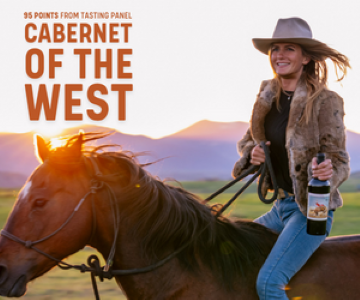This series highlights hospitality professionals who are responding to the industry crisis caused by the coronavirus pandemic in particularly creative, conscientious ways.
From October 9, 2019—when new Echo Park eatery Bar Avalon began dinner service and its adjacent sibling, wine boutique EVE Bottle Shop, opened its doors—until the day in March that Los Angeles was ordered to shelter in place, Nathaniel Muñoz billed himself as the two businesses’ operating partner. But he’s assumed a few more titles since then, having merged the establishments into a single entity, Bodega Avalon, almost overnight. “Right now, I clean the bathrooms; I’m a deli clerk; I’m a bodeguita,” he says wryly.
It was quite a dramatic pivot for Muñoz and his chef, Joshua Guarneri. On March 4, the Los Angeles Times’ restaurant critic had anointed Bar Avalon a “neighborhood gem,” and business promised to boom; just nine days later, on Friday the 13th (what else?), he was facing 52 cancellations in a single evening. “It was the first time we’d had that many reservations on the books, and they all cancelled on us,” he recalls. But by the following Monday, he “had already decided what we were going to be and how we were going to brand it: We were going to become a low-contact bodega and operate out of the smallest possible space.”
Coming from New York, where he worked under April Bloomfield, Guarneri was “very familiar with the bodega model,” Muñoz explains, “so I told him: ‘You’re gonna have quick prepared foods and low-prep meal kits, and we’re going to sell off everything.’ Meanwhile, I emptied my wine fridges and half of my wine shelves and started putting up eggs, butter, flour, stocks, and produce” in the EVE space. Within a few days they were running one of the first (if not the first) on-premise establishments to reopen as an off-premise space in all of Los Angeles.
For all his bold, decisive action, Muñoz is the first to acknowledge that the new business model is still evolving. Customers were initially allowed to move about the shop so long as they didn’t touch the merchandise; now he asks them to remain on the welcome mat while he fills their orders. And the orders themselves are becoming increasingly elaborate: “Now that people are getting used to cooking for themselves, they’re asking for more things,” he says, and he’s building his inventory accordingly. “I have buckwheat and chickpea flour now, and wholesale sheets for Peads & Barnetts pork, for Liberty Ducks out of Sonoma, for our coveted fishmonger Yokose Seafood. Right now trying to go to the supermarket to get fish is kind of a nightmare; people are very worried about their interactions. I was like, ‘Hey, we can provide these things to our guests.’ Doing everything we can to provide what people want keeps us relevant in the community.” He’s even making personal deliveries (which may include wines from his fabulous list) on his commute home after 8 p.m.; his apparently saintly girlfriend Kelly has volunteered to do the same on Saturday afternoons. In fact, last Saturday, “we put out 22 deliveries in three hours.”
But it’s not just about serving customers for Muñoz—it’s also about “keeping the food chain intact. We have an opportunity to wholesale from our vendors so that they have cash flow. When we come back, I want to have all of my vendors in business; otherwise we would be starting all over again.” By the same token, he wants to do right by his furloughed staff. “Chef and I aren’t taking money,” he says. Instead all tips as well as revenue from a pay-it-forward program go into a fund that provides food and necessities for employees until they can be rehired. At present, he admits, “Unemployment is the better income for them. But as soon as that skews in the other direction, we’ll bring them back on.” —Ruth Tobias

